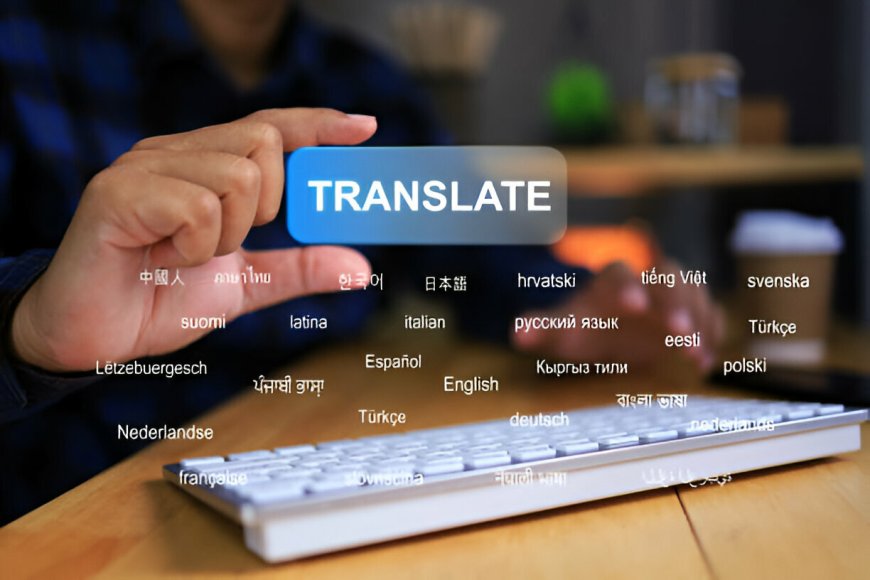Translation Quality Assurance: What It Is and Why It Matters
Discover how Translation Quality Assurance (TQA) ensures accurate, culturally appropriate, and brand-consistent translations. Learn why Miami and San Jose translation services are essential for global business success.

As our planet continues to become more and more globalized, businesses have never been requested to speak so many languages so often. When you must reach new markets, create stronger customer relationships, or meet overseas regulatory demands, you require excellent translations. So how do you make sure your translations are perfection, aligned with your company's voice and personality? Translation Quality Assurance (TQA) is the solution.
When you pay for professional translation, it is vitally important that the end product be of professional quality. That is where Miami translation services and San Jose certified translation services come in and give you professional quality control methods to ensure that your translations provide you with what you need.
What is Translation Quality Assurance?
Translation Quality Assurance (TQA) is a regulated process to ascertain the quality, accuracy, and consistency of the translation. It is a review and checking process to detect any error, inaccuracy, or inconsistency before finalizing and handing over the translation.
Quality control in translation is not limited to language. It also takes into account cultural background, structure, and purpose of the documents to guarantee that the end product is satisfactory for the client and acceptable to the target market.
A standard TQA process could include:
-
Initial Translation: An experienced translator conducts the initial draft of the translation.
-
Editing: A second linguist checks the text for accuracy, grammar, and tone.
-
Proofreading: The text is proofread for typographical or format errors.
-
Quality Control Checks: Automated or manual checks for consistency, terminology, and conformity with client preferences.
-
Client Review: If needed, the client reviews for final touch-ups.
This step-by-step process ensures each translation is accurate, meaningful, and culturally appropriate.
Why TQA Matters: The Real-World Benefits
1. Preventing Costly Mistakes
Translation errors can be expensive, both in dollars and reputation. One mistake in a legal contract, marketing document, or web page copy might result in misunderstandings, customer discontent, or even legal liability. A Miami translation company that uses TQA can identify these problems before they see the client or public.
Example: A law firm in Miami employed a cheap translation company to translate its contracts into Spanish for sale in a Latin American market. The translation proved to be incorrect, and a misunderstanding resulted in a multi-million-dollar lawsuit lost by the firm. Once they changed to a certified translation company in San Jose with a rigorous TQA process, the contracts of the firm were translated more correctly, eliminating future expensive errors.
2. Improving Customer Satisfaction
Customers want their translations to be accurate, easy to read, and culturally appropriate. Your business's success can depend on delivering quality translation if your business is expanding globally. An inappropriate translation of a website, instruction guide, or an advertising campaign may mislead your customers, and prospective customers might lose confidence in your business.
Case Study: A San Jose corporation released a new product in China. They used machine translation first without TQA testing. Marketing materials for the product became problematic due to hazy explanations regarding the product itself. Once they relied on San Jose certified translation services that have a strict process of TQA, the new translations resulted in an improved experience for customers, more trust, and higher sales.
3. Ensuring Brand Consistency
When your content is translated, it's essential that your brand voice is maintained throughout languages. TQA prevents a loss of terminology, tone, or message that may deflect from your brand image regardless of the language. It's essential that this consistency be maintained to support brand recognition and loyalty in any market.
Example: A Miami-based global apparel firm chose to expand into the European market. They were employing several translation agencies, each handling various languages. Unfortunately, the tone was quite inconsistent, which confused customers. By adopting a centralized TQA process with Miami translation services, they were able to maintain their brand voice consistent throughout the entire European market, resulting in more unified messaging and improved customer interaction.
4. Legal and Compliance Accuracy
For businesses such as finance, healthcare, and legal service, accurate translations are paramount. Misunderstood phrases or legal contract missteps could have disastrous ramifications. For this reason, a TQA procedure is especially significant for businesses that have stricter compliance guidelines.
Case Study: A medical provider venturing out into non-English-speaking nations utilized certified translation services in San Jose to translate medical records. Through the services of TQA, they had patient consent forms, medical histories, and product labels translated with precision and within compliance with the local laws, avoiding possible lawsuits or regulatory challenges.
5. Enhancing ROI on Global Marketing Campaigns
When taking your product to market internationally, it is critical that your message resonates with international cultures. TQA ensures that your message is both linguistically accurate and culturally accurate. This can boost engagement and increase conversion rates in global markets.
Example: A Miami-based global cosmetics company wanted to introduce a campaign in Japan. They required not just a literal translation but a culturally appropriate campaign that would appeal to the local market. Through collaboration with a Miami translation agency that involved TQA in their workflow, the message of the brand was not just correct but effective, and the launch in the Japanese market was a success.
How TQA Works in Practice
For companies, particularly those going international, Translation Quality Assurance is an essential process.
1. Pre-Project Preparation
Before initiating a project, the client and translation service provider will get clear expectations regarding style, tone, and vocabulary to be used. A style guide or glossary could be created to ensure consistency during the process of translation.
2. Translation Process
The translation starts with a very talented linguist familiar with both the source and target languages. Most often, the translator will specialize in the relevant industry (e.g., legal, medical, technical).
3. Editing and Proofreading
After the translation is done, another linguist will proofread it to make sure the translation is correct and has no errors. Proofreading ensures the translated word is clean and free of typographical or formating errors.
4. Quality Control Checks
There are some translation service providers who utilize specialized software to conduct consistency checks so that the terminology does not change at all in the document or project. Such software is able to detect any differences and mistakes that would otherwise remain undetected.
5. Client Review
Lastly, the client will be able to see the translation and offer comments before finalization. This process is particularly crucial for specialized or highly technical translations, where client-specific requirements must be included.
Conclusion
With the global market today, businesses need precise and culturally adapted translations for overseas expansion or reaching multilingual audiences. Your translation quality assurance process makes every translation error-free, consistent with your brand, and compliant with the law. Whether you need Miami translation services or San Jose certified translation services, adopting a TQA process will give you high-quality translations that safeguard your brand's reputation and enhance customer satisfaction.
Translation quality assurance investing isn't about getting words correct, it's about getting your message correct. And when your message is accurate, culturally correct, and professionally translated, you are more likely to succeed globally.













































































